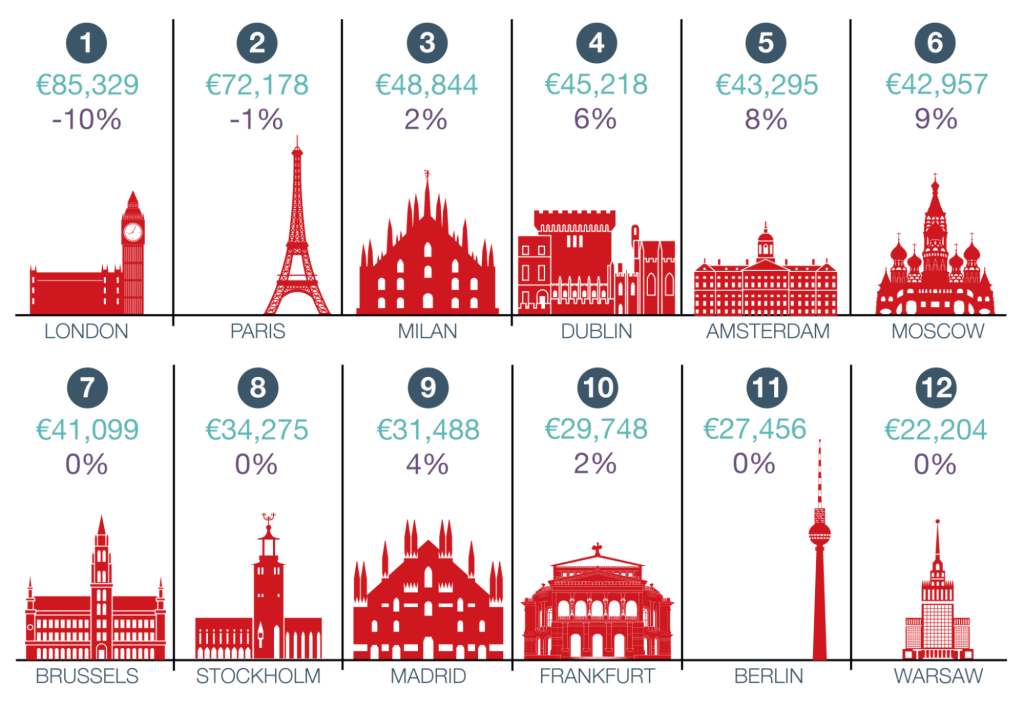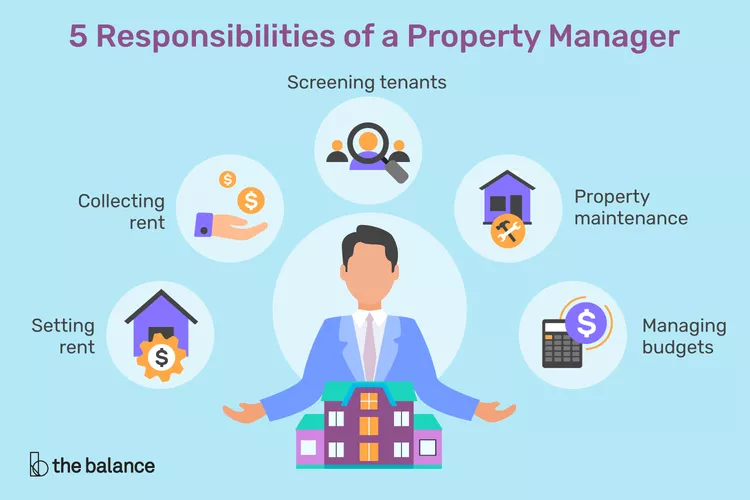Local (European-Specific) Content: Property Management in Europe
Lesson Learning Objectives:
- Understand what property management is and why it is essential for keeping rental properties running smoothly in European cities. You’ll learn how it supports tenants, protects investments, and ensures properties follow local laws.
- Learn how property managers operate in different European countries, from selecting tenants and collecting rent to handling maintenance and legal compliance. This knowledge will help you decide if professional management is right for your situation.
- Compare self-management vs. hiring a professional by exploring the pros and cons of each approach. This will help you make a smarter decision based on your time, budget, and location.
- Explore the key responsibilities of a property manager, including legal compliance, maintenance, financial reporting, and tenant screening. Knowing these tasks will help you understand the full scope of what’s involved in running a rental property.
- Gain insight into the European rental market, including city-specific trends and legal challenges that impact property owners and managers. You’ll be better prepared to manage or invest in real estate across Europe.
13.1 Property Management in Europe
Property management is the oversight and administration of residential or commercial real estate by a third party or owner. In Europe, property management is crucial for ensuring that properties are well-maintained, tenants are satisfied, and legal obligations are met. With the variety of regulations across different countries, property management in Europe often involves navigating complex tenant laws, building codes, and local market dynamics.
How Property Management Works in Europe
Property management companies or individual property managers handle everything from tenant selection and rent collection to maintenance and legal compliance. For real estate investors in cities like Paris, Berlin, Und Amsterdam, professional property management can save time and help maintain consistent rental income by handling all aspects of property operations.
Key Tasks of Property Management
- Tenant Relations: Property managers handle tenant communication, ensuring that rent is collected on time and that any disputes or issues are resolved efficiently.
- Maintenance: Routine inspections and repairs are carried out to keep the property in good condition. In Europe, older properties, especially in cities like Rome oder Athens, may require more frequent maintenance.
- Legal Compliance: European countries have strict regulations regarding tenant rights, safety standards, and rent control. Property managers ensure compliance with these laws to avoid legal issues.
Challenges
- Varying Regulations: Each European country has different tenant protection laws and rental regulations. For example, in Berlin, strict rent control laws limit how much landlords can charge tenants, while other cities like Lisbon have more relaxed regulations.
- Higher Costs in Major Cities: Hiring property management services in expensive cities like London oder Zurich can come at a premium, cutting into rental profits.
Figur: European Office Market Trends
Beschreibung:
This bar chart illustrates the prime office rental growth across various European cities over a specified period. Each bar represents a city, with the length indicating the percentage change in prime office rents. Cities like Stockholm, Berlin, Und Dublin exhibit significant rental growth, while others like Madrid Und Milan show more modest increases. This visualization provides insights into the varying dynamics of the European office rental market, highlighting cities with robust demand and rental appreciation.
Wichtige Erkenntnisse:
- Stockholm leads with the highest prime office rental growth, indicating strong demand in the Swedish capital.
- Berlin Und Dublin also show substantial increases, reflecting their growing appeal as business hubs.
- Southern European cities like Madrid Und Milan exhibit slower rental growth, suggesting more stable or saturated markets.
- The data underscores the diverse performance of office markets across Europe, influenced by factors such as economic conditions, business demand, and supply constraints.
Application of Information:
For investors Und businesses considering expansion in Europe, understanding these rental growth trends is crucial. Cities with high rental growth, like Stockholm Und Berlin, may offer opportunities for capital appreciation but could also entail higher entry costs. Conversely, markets with slower growth might provide more stable investment environments. This information aids in making informed decisions regarding real estate investments Und office space leasing across different European cities.
13.2 Managing the Property Yourself vs. Hiring a Professional Property Manager in Europe
Managing the Property Yourself
Self-managing a property in Europe involves overseeing all aspects of rental operations, including tenant selection, rent collection, and property maintenance. While self-management can save on property management fees, it can be time-consuming, especially for investors with multiple properties or those who live far from the property.
Vorteile
- Cost Savings: By managing the property yourself, you avoid paying property management fees, which can range from 5-15% of the rental income in European cities like Paris oder Madrid.
- Full Control: Self-managing gives the property owner complete control over all decisions, including maintenance, tenant selection, and rent increases (where allowed).
Nachteile
- Time-Consuming: Managing multiple properties or handling tenant issues yourself can be overwhelming, especially in large cities like London, where tenant turnover may be frequent.
- Complex Legal Environment: European countries have different tenant protection laws, making it difficult for non-professional landlords to stay updated on regulations. For example, Germany has stringent laws governing tenant evictions, which could complicate management for a self-managing landlord.
Hiring a Professional Property Manager
A professional property manager handles all aspects of property management, from finding tenants to ensuring legal compliance. This is a popular choice for investors in cities like Amsterdam oder Vienna, where managing property can be complex due to local regulations and tenant laws.
Vorteile
- Expertise: Property managers are familiar with local regulations and tenant laws, ensuring that the property complies with all legal requirements.
- Less Work: By hiring a property manager, landlords can delegate tasks such as rent collection, tenant relations, and property maintenance, saving time and reducing stress.
- Professional Network: Property managers often have access to contractors, legal advisors, and other professionals, helping to resolve issues more quickly.
Nachteile
- Management Fees: Hiring a property manager reduces rental income due to the management fees, which can range from 8-15% of the rental income, depending on the city and services provided.
- Loss of Direct Control: Landlords relinquish some control over decisions, such as tenant selection and maintenance schedules, when they hire a property manager.
13.3 Responsibilities of a Property Manager in Europe
Property managers in Europe have a wide range of responsibilities, depending on the property type and location. In highly regulated markets like Berlin Und Paris, property managers must ensure that they comply with tenant protection laws and rent controls. Here are some of the key responsibilities of property managers in Europe:
- Rent Collection
Property managers ensure that rent is collected on time and handle any issues related to late or missed payments. In countries like France, where tenant rights are strongly protected, property managers often play a critical role in resolving rent disputes. - Wartung und Reparaturen
Regular inspections and maintenance are vital, especially for older buildings in cities like Rome Und Vienna. Property managers coordinate with contractors to perform repairs and ensure the property is kept in good condition, avoiding tenant dissatisfaction or legal liabilities. - Tenant Screening and Selection
Property managers handle tenant screening to ensure that suitable tenants are selected. This includes background checks, income verification, and rental history assessments. In competitive markets like London, finding the right tenant can mean the difference between stable rental income and frequent vacancies. - Legal Compliance
In cities like Berlin oder Madrid, property managers ensure that properties comply with local laws regarding tenant rights, rent controls, and health and safety standards. This also includes managing tenant disputes and ensuring the lease agreements are legally enforceable. - Property Marketing
Property managers are responsible for marketing the property to potential tenants. This includes creating listings, arranging property viewings, and negotiating lease agreements. In tourist-heavy cities like Barcelona, property managers often work with short-term rental platforms like Airbnb to maximize occupancy. - Handling Evictions
If a tenant breaches the lease agreement, the property manager is responsible for navigating the eviction process, which can be particularly challenging in countries with strong tenant protections, like Germany oder Sweden. - Financial Reporting
Property managers provide financial reports to landlords, detailing income, expenses, and maintenance costs. In cities like Zurich oder Copenhagen, where property prices and rental costs are high, accurate financial reporting is essential for investors to track the profitability of their investments.
Figur: 5 Responsibilities of a Property Manager
Beschreibung:
This graphic outlines the five key responsibilities of a property manager, which include screening tenants, collecting rent, setting rent, property maintenance, Und managing budgets. Each responsibility is visually represented with an icon, such as a magnifying glass for tenant screening or a wrench for property maintenance. The central figure symbolizes a property manager overseeing these tasks, emphasizing their role in ensuring the smooth operation and financial success of rental properties.
Wichtige Erkenntnisse:
- Screening tenants ensures the selection of reliable renters, reducing the risk of missed payments or property damage.
- Collecting rent is a critical task to maintain cash flow and meet the financial needs of property ownership.
- Setting rent involves determining competitive yet profitable rental rates based on market conditions.
- Property maintenance ensures the property remains in good condition, which supports tenant satisfaction and long-term value.
- Managing budgets involves tracking expenses and planning for repairs or improvements to maximize profitability.
Application of Information:
Understanding these responsibilities is essential for landlords, real estate investors, or anyone considering a career in property management. By mastering these tasks, property managers can ensure financial stability, maintain tenant satisfaction, and protect the long-term value of rental properties. This knowledge helps investors assess whether to hire a manager or handle these responsibilities themselves.
Wichtige Unterrichtsinformationen:
- Property management in Europe is important for keeping properties well-maintained, tenants satisfied, and complying with local laws. This is especially important in cities like Berlin, Paris, and Amsterdam where regulations can be complex.
- Property managers handle many tasks, including tenant communication, rent collection, maintenance, Und legal compliance. These services can save landlords time and prevent legal trouble, especially in countries with strict tenant protection laws.
- Self-managing your property can help you save on management fees and maintain full control, but it also requires more time and knowledge of local regulations. In cities like London or Berlin, managing without professional help can be very difficult.
- Hiring a professional property manager gives you access to expertise, a strong professional network, and less day-to-day work. However, it reduces your rental income due to management fees and limits your direct decision-making.
- Der key responsibilities of property managers include screening tenants, setting and collecting rent, managing maintenance, handling evictions, ensuring legal compliance, and producing financial reports. Each of these tasks contributes to stable and profitable property ownership.
Schlusserklärung:
These chapters give you a clear picture of how property management works in Europe, what tasks are involved, and the pros and cons of managing a property yourself. By understanding this, you can make better decisions as a landlord or investor and improve your rental experience.




